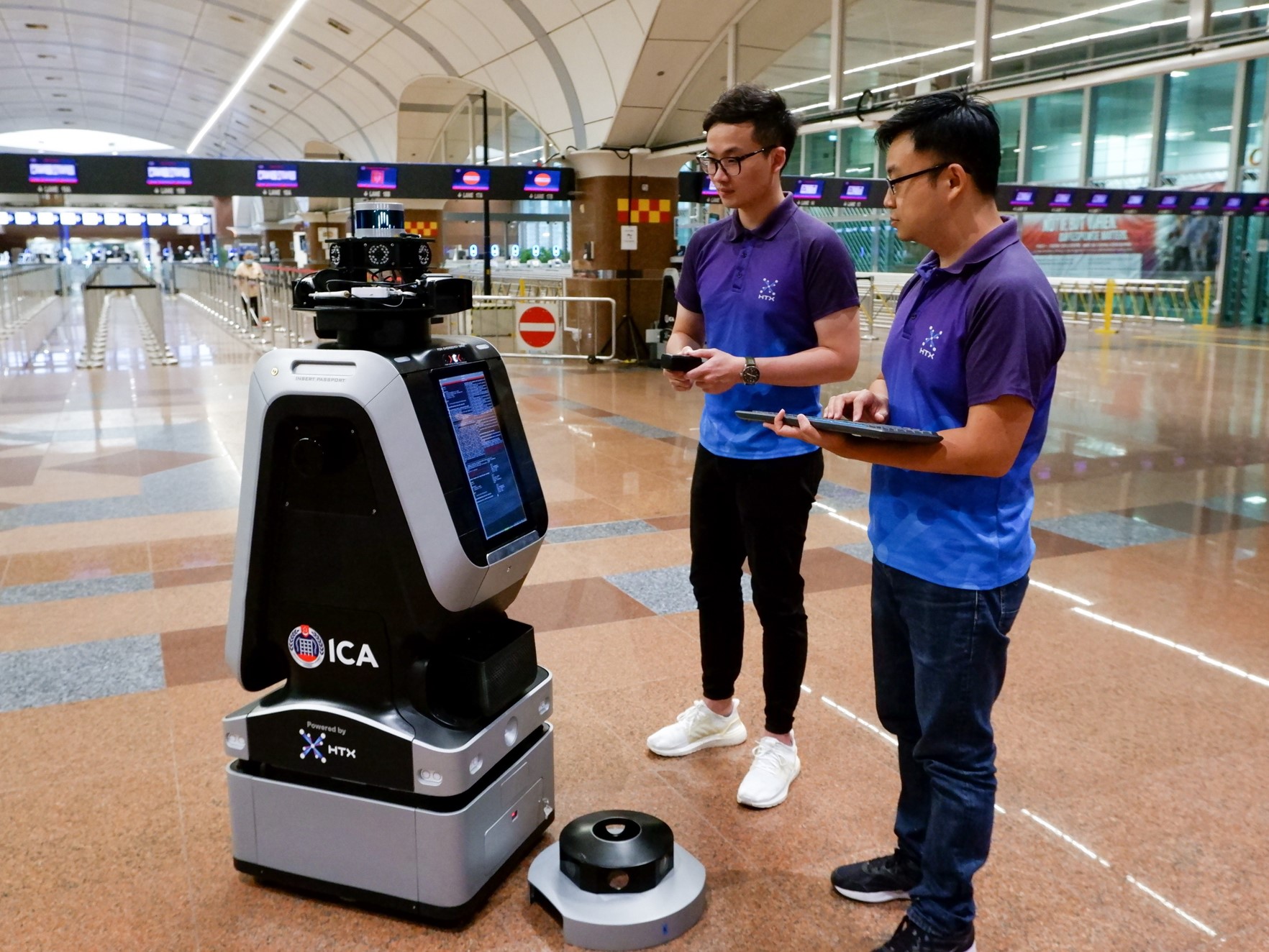
Travellers arriving in Singapore might spot the Robotic Escort & Security System (RESS), an escort robot that is currently on trial at the bus hall at Tuas Checkpoint.
Conceptualised by engineers from HTX's Robotics, Automation and Unmanned Systems Centre of Expertise (RAUS CoE), in collaboration with Immigration & Checkpoints Authority (ICA), RESS uses navigation sensors and video analytics to manoeuvre autonomously and guide travellers from the immigration counters to secondary office areas for further assistance.
“The idea of using robots to perform escort duties was first mooted during an ops-tech discussion with Commander of Tuas Checkpoint and our immediate thought was this: the robot should not look intimidating to the traveller.
“We wanted to make sure that we have the correct human-machine interface in place so that the traveller can be guided to follow the robot, as well as for the robot to track the traveller. And we wanted to ensure that the behaviour of the robot was acceptable when the traveller was too close or too far from it. These considerations shaped the design of the robot that you see here today,” said Lee Guoming, Deputy Director, RAUS CoE, who initiated the project.
"The RESS live trials will provide valuable insights on how the use of robots and automation can enhance Immigration & Checkpoints Authority operations, to enable a safer and more seamless immigration clearance experience," said Ong Ka Hing, Deputy Director, RAUS CoE.
The trial runs from August 15 to November 11, 2022.
Watch a video about Robotic Escort & Security System (RESS) here:

